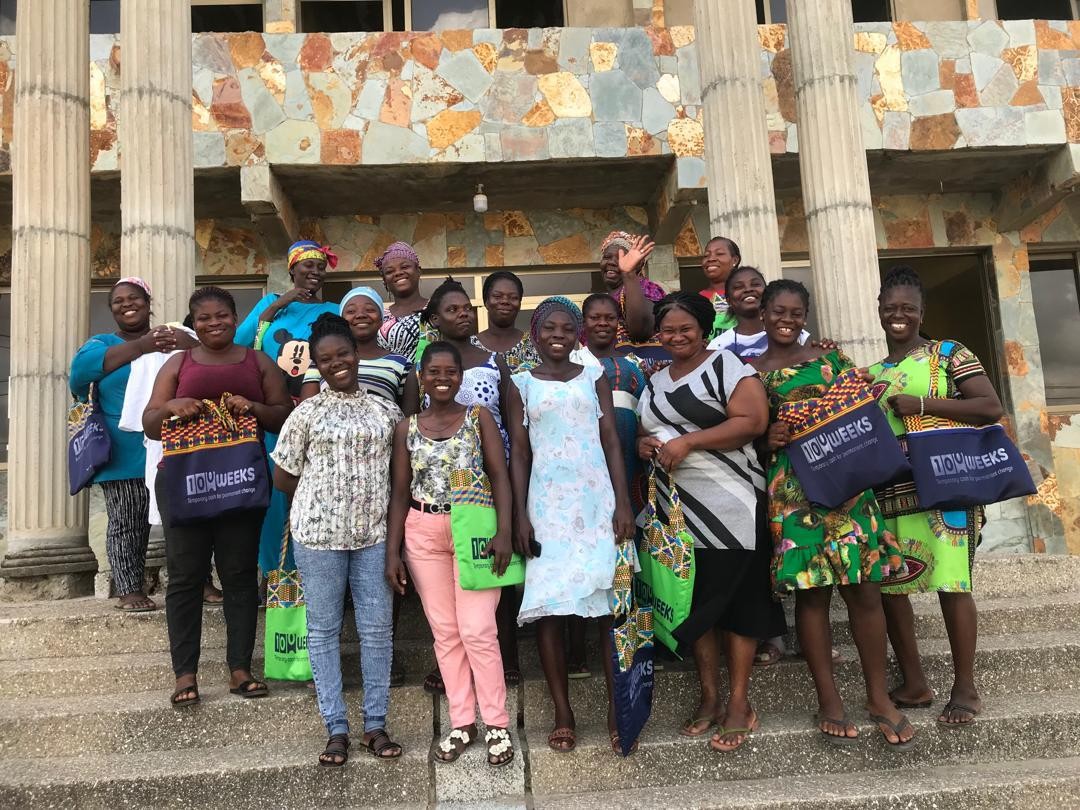Cash Transfer Project......
The overall goal of the project is to assist women living in extreme poverty in and around Winneba to sustainably move out of poverty. The programme consists of 100 Weeks of direct unconditional cash transfer of 8 Euros in local currency to selected vulnerable women. Cash transfer is done by making use of the Vodaphone mobile money system. The baseline is conducted the 100 Weeks at intake and the regular meeting is done through mobile phone surveys or face-to-face interviews using a question. Women in groups of 20 receive 100-week training and peer-to-peer sessions. Women are trained in financial literacy, basic entrepreneurship, sexual and reproductive health and life skills training. The target of the Winneba project is to support a minimum of 1000 women. From start to date, we have provided grants and training to up to five hundred and forty beneficiaries. Evidence from an evaluation of 140 women/households shows the beneficiaries have improved across core indicators of the project including household food security, nutrition, income, access to improved sanitation, electricity, clean water and average savings.
Specifically, the results highlight significant improvements in various indicators between the baseline and endline, indicating positive changes over time. At baseline, households consumed an average of 2.1 meals per day, which increased to 3.1 meals by the endline. Additionally, food security improved dramatically, with the share of food-secure households rising from 0% at the baseline to 72% at the endline. Children's diets also saw substantial improvements: the share of children eating meat increased from 30% to 93%, dairy product consumption rose from 15% to 86%, and the percentage of children consuming fresh fruit went from 53% to 93%. In terms of women's economic empowerment, by the endline, 75% of women had expanded their source of income since the implementation of the 100 Weeks program, 86% had invested in a new source of income, and 83% had made a significant investment. Importantly, the percentage of women who reported losing sleep often due to worries dropped from 38% to 0%. Social inclusion also improved, with the share of women usually invited to community celebrations rising from 58% to 83%. Household infrastructure access showed notable improvements as well.
The proportion of households with access to improved sanitation increased from 33% to 78%, access to electricity improved from 76% to 94%, and access to clean drinking water rose from 83% to 90%. Financially, average monthly savings increased from 44 GHS to 128 GHS, and total savings grew from 0 GHS to 1,118 GHS. Moreover, households classified as poor according to the Multidimensional Poverty Index decreased from 63% at baseline to 16% at the endline. In conclusion, the data reflect significant advancements in food security, economic empowerment, infrastructure access, and financial well-being, indicating the effectiveness of the 100 Weeks program in improving the living conditions of the households involved.
